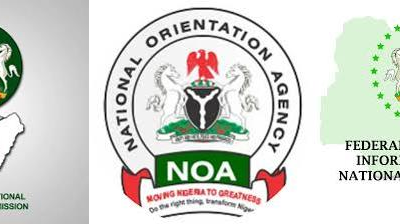By Odunewu Segun
The purported decision of the Egmont group to expel Nigeria’s Financial Intelligence Unit (FIU) at its meeting, scheduled for 2nd-7th of March 2018 at Buenos Aires, Argentina is going to have serious consequences for both Nigeria as a country and its people unless the group’s demand is met.
If the expulsion goes through, Nigerian banks will not be able to issue ATM cards by Mastercard and Visa.
Reacting to the impending suspension, a financial analyst and public commentator, Okuofu Osilama told National Daily that the suspension would have a dire consequence on Nigerians.
He said Nigeria’s inflow of capital which in the Q3 of 2017 for the first time since 2015 hit over $4,000 million would suffer, and you know what that means for Nigeria that was just getting out of recession.
He also added that portfolio investment, which was put at $2,767.4 million in the quarter of 2017, the largest component of capital import would also diminished if care is not taken
Recall that Nigeria got $18.956 billion as remittances in 2016, making it the highest receiver of foreign remittances in Africa and the sixth largest in the world. “Remittances make up 4.4 percent of the country’s Gross Domestic Product and it has grown by 5.2 percent in nine years. If the suspension is carried out, these remittances would drop as it would become very difficult for people to send money back home as it used to be”
He said Nigerians may be forced to rely on cash for transactions abroad in the absence of cards. This could then push them to the parallel market, as official markets limit the amount of cash one can buy per quarter.
“Pressure on the parallel market then leads to depreciation in its rates. Parallel rates will become more expensive. This then makes regular transactions even more expensive for the average Nigerian,” Osilama said.
According to him, banks’ card income will take a hit, coming at a time when yields on money market instruments are dropping. “Banks may also have to access foreign trade lines and loans at a premium, making such funds slightly more expensive for them. This added cost will be in turn passed to businesses and customers.”
ALSO SEE: N650m: Former minister opts for plea bargain with EFCC
He said E-commerce firms would also be affected since their business models are largely online. “They would be forced to rely on cash for transactions, which comes with higher processing costs. The expulsion could also throw a spanner in the Central Bank of Nigeria’s bid to improve financial inclusion.”
The proposed suspension, National Daily gathered is based on Egmont Group’s fears that it is still unconvinced that Nigeria’s Financial Intelligence Unit (NFIU) has sufficient independence from the Economic and Financial Crimes Commission (EFCC).
It has earlier placed a suspension on Nigeria in July 2017 which lapsed in January, 2018. And to avoid further extension of the suspension; Nigeria’s Senate passed a bill granting autonomy to the Nigerian Financial Intelligence Unit (NFIU).
The bill is yet to be harmonized with the House of Representatives, insisting on the NFIU being domiciled with the EFCC. This difference of opinions has led to a delay in the bill being presented to President Muhammadu Buhari for approval.
The Egmont Group is a united body of 155 Financial Intelligence Units (FIUs). The group provides a platform for the secure exchange of expertise and financial intelligence to combat money laundering and terrorist financing. Nigeria joined the organization in 2005 but was granted full membership in 2007.

 Comments and Issues6 days ago
Comments and Issues6 days ago
 Education7 days ago
Education7 days ago
 Comments and Issues6 days ago
Comments and Issues6 days ago
 Comments and Issues6 days ago
Comments and Issues6 days ago
 Energy7 days ago
Energy7 days ago
 Comments and Issues5 days ago
Comments and Issues5 days ago
 Football7 days ago
Football7 days ago
 Football1 week ago
Football1 week ago


